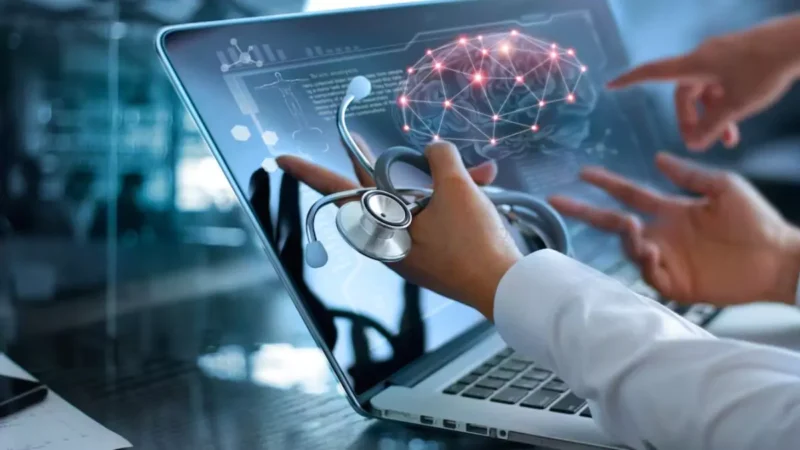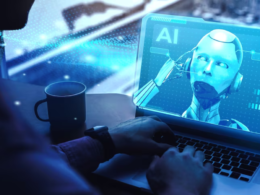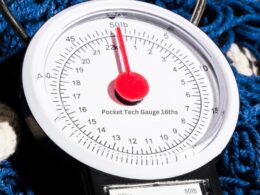Aiotechnical.com Health is a dynamic field, and technological advancements will continue to shape its future. The incorporation of AI is one of the most intriguing and promising developments in this area. This article will dig into the many ways in which AI is enhancing patient care in the healthcare business, from diagnosis to therapy. Come along as we explore the complicated web of connections between AI and the state of technology’s health.
Introduction
The emergence of AI in recent years has shaken the healthcare sector. This sort of technology, more often associated with robotics and the future, is a perfect match for the medical profession, where speed and precision are of the utmost importance. AI won’t replace human medical professionals, but it will make them more effective at caring for patients.
Understanding AI in Healthcare
First, let’s get a feel for what artificial intelligence (AI) can do for healthcare in general. To create computer systems that can carry out activities that traditionally require human intellect is to build artificial intelligence. This covers a broad spectrum of uses in the healthcare industry, including information gathering, pattern identification, and making choices.
Enhancing Diagnostics
The field of diagnosis has benefited greatly from artificial intelligence. AI can help in illness identification because of machine learning techniques and access to large patient databases. For instance, AI-driven image recognition systems can spot irregularities in medical imaging, allowing radiologists to more precisely pinpoint the source of a problem.
Personalized Treatment Plans
Every patient requires individualised care. By analysing patient data, AI can design effective, individualised therapies. Personalized medicine considers a patient’s genetic makeup, medical history, and even their lifestyle choices when developing an individualised treatment plan.
Streamlining Administrative Tasks
Time spent on administrative duties typically comes at the expense of direct patient care. Appointment scheduling, billing, and medical record administration are just a few examples of how AI-powered administrative solutions are freeing up healthcare providers’ time to focus on patients.
Telemedicine and Remote Monitoring
AI has helped make telemedicine more accessible, which is very important in the modern world. People in outlying places or who are unable to travel for medical care can benefit from virtual consultations made possible by this technology. With the use of artificial intelligence, monitoring gadgets can keep tabs on a patient’s vitals and immediately notify doctors of any abnormalities.
Drug Discovery and Development
For drug research and development, the pharmaceutical industry has adopted AI. Artificial intelligence (AI) systems are able to analyse large chemical datasets with more speed and accuracy than human experts. This speeds up the time it takes to get new drugs to consumers.
Ethical Considerations
While AI has many practical applications, it also causes moral issues. Protecting patients’ privacy, eliminating algorithmic bias, and keeping everyone informed of important decisions are all crucial to using AI in healthcare ethically.
The Future of AI in Healthcare
In the future,Aiotechnical.com Health will have even more potential in the medical field. AI-driven research will continue to unearth novel therapeutic alternatives, and developments in natural language processing and robotics will further revolutionise patient care.
Case Studies: Real-world Applications
Let’s look at some real-world examples of how AI has been successfully applied in the healthcare industry. These examples from the medical field show how AI is helping to save lives and enhance treatment outcomes.
Challenges and Limitations
The applications of Aiotechnical.com health are extensive, but there are also significant obstacles and constraints to be aware of. There are a number of possible drawbacks, such as the high initial cost, poor data quality, and fears of job loss.
Cybersecurity Concerns
Because of how closely related healthcare systems are, they are easy targets for cybercriminals. Cybersecurity measures are bolstered with the help of AI to prevent the theft of patient data and guarantee the accuracy of medical records.
Regulatory Framework
Governments and regulatory bodies all over the world are developing frameworks to guarantee the moral application of AI in healthcare. Trust in AI-driven healthcare solutions relies on their ability to comply with these rules.
AI’s Impact on Healthcare Professionals
AI is meant to complement medical staff, not replace them. It can enhance their talents, freeing them up to concentrate on the more nuanced, human-centric activities while AI takes care of the mundane, data-heavy ones.
Conclusion
To sum up, Aiotechnical.com Health has ushered in a new era of Aiotechnical.com health that is more precise, effective, and accessible. The role that AI already plays in health care, research, and administration will surely grow as the technology develops.











